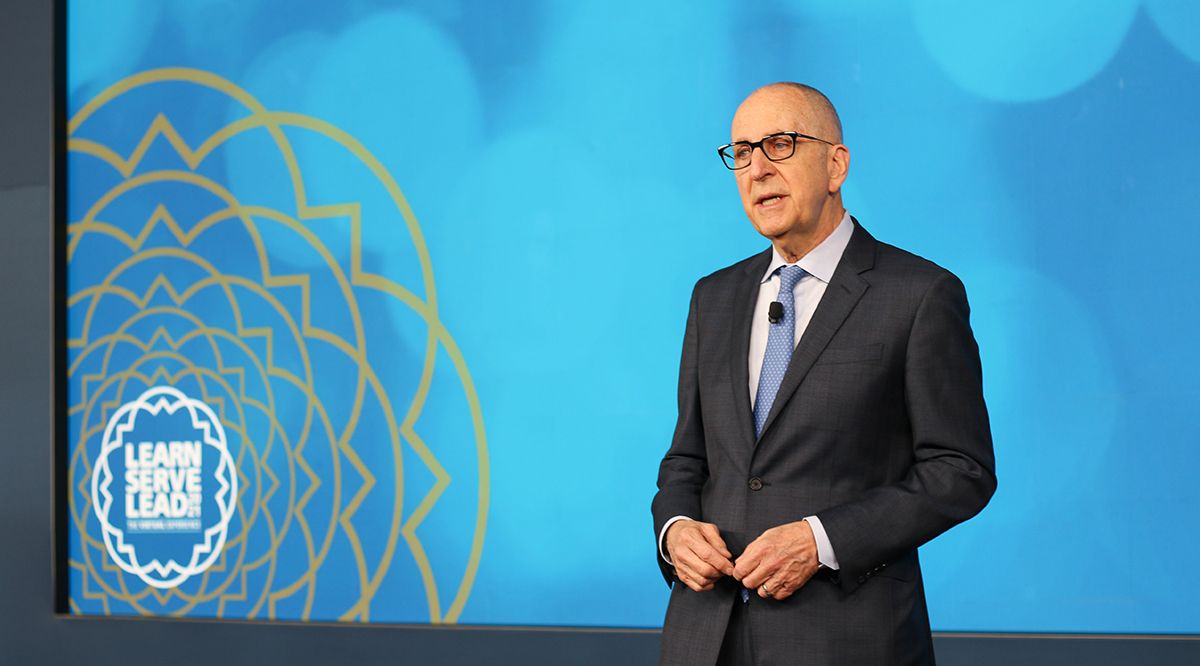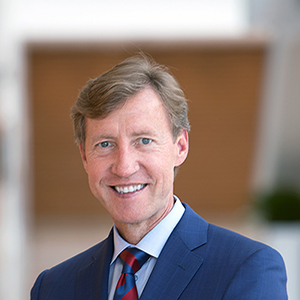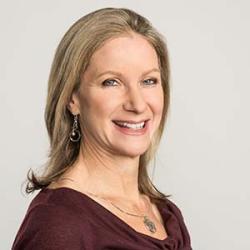
AAMC President and CEO David J. Skorton, MD, and AAMC Board Chair J. Larry Jameson, MD, PhD, challenged physicians and scientists from U.S. medical schools and teaching hospitals on Nov. 9 to build on the momentum created by the COVID-19 pandemic to address the long-standing issues that have plagued the nation’s health care system for so long.
While the last two years have seen extraordinary advances in science and medicine — from the rapid development of lifesaving mRNA vaccines to the widespread adoption of telehealth — “the inequities and gaping holes in our health care system that have long plagued us have only intensified,” Skorton told more than 4,000 medical professionals during the leadership plenary of Learn Serve Lead 2021: The Virtual Experience, the annual meeting of the AAMC.
Other issues — including societal and financial barriers to medical education, a burdensome transition to residency, and external forces such as climate change and an increasingly politicized “disinformation” campaign that threatens public health — must be addressed if academic medicine is to deliver on its promise to improve the health of all.
“We know the potential of the U.S. health care system,” said Jameson, executive vice president of the University of Pennsylvania for the Health System and dean of the Perelman School of Medicine at the University of Pennsylvania. “We are the innovators of most new medical advances. … We have some of the finest health care facilities in the world. Nevertheless, it is a long-standing tragedy that our health outcomes lag most of the developed world.”
The sources of this paradox are well known and include persistent health disparities, misallocation of resources, and an overly bureaucratic payment system, he said.
“As physicians and leaders in academic medicine, we cannot wait for others to address these challenges,” he said. “Change will happen either with us or to us.”
Jameson identifies seeds of change

Noting the privileged roles that academic physicians and scientists serve in American life — e.g., preventing and treating disease, discovering innovative treatments, teaching the next generation of medical students and residents — Jameson also reminded the audience that with privilege comes responsibility.
“We should remember that our profession is largely self-regulated,” he said. “We created most of our policies — formal and informal. We establish the curriculum — explicit and hidden. Therefore, in principle, we can change these policies and practices.”
Among needed changes are more holistic criteria for admission to medical school that focus less on GPA and MCAT® scores and more on the skills necessary to treat a diverse and medically complex population, he said, noting that after many years of slow progress, last year saw a meaningful increase in the enrollment of more diverse students into medical school.
“More diverse caregivers are essential to build trust in our profession,” he added, “and this trust can accelerate closing health disparities.”
Innovations in medical education, with an emphasis on team-based care, can help future physicians keep up with rapidly evolving medical knowledge. And innovations in research will require even greater collaboration with government and industry — while still upholding the highest scientific standards — to ensure that discoveries in the lab are translated into new treatments for patients.
“If we are going to accelerate change in academic medicine, we need leaders willing to innovate boldly, but in a manner that preserves our high standards for evidence, safety, and professionalism,” he said.
Skorton calls on academic medicine to step up
While the issues facing academic medicine are deeply complex, Skorton identified three ways to begin to resolve them.
First, he called on academic institutions and individuals to take direct responsibility for some of medicine’s long-standing, intractable problems and to continue to work collaboratively with patients, families, and communities. “When we actively and intentionally listen to and collaborate with communities, we can successfully co-create ways to address the social determinants of health that prevent too many people from being as healthy as they could be.”
To be effective, though, such efforts must also “address underlying factors that affect the social determinants of health, such as poverty and systemic racism,” he added.
Second, academic leaders must focus on improving the internal climate in order to maximize academic medicine’s external impact. That will include improving the transition from medical school to residency, creating a climate of inclusivity and equity within medical schools and teaching hospitals, and increasing the number of diverse applicants and enrollees.
Finally, physicians and scientists must be willing to initiate conversations on divisive public health issues — including such topics as gun violence and abortion that have historically been deemed too controversial. “I urge you: Walk toward these issues and go out into your communities to address them. Take off your white coats. Step outside your offices, head down the block, initiate crucial conversations — and listen with more than your stethoscopes.”
“Why now? Why us? Because prejudice, hate, politics, and other nonscience factors have taken over public discourse in harmful ways. … It takes listening to people’s lived experiences and doing the work to understand how those experiences impact their views, rather than ignoring, avoiding, and denigrating those ideas because of their source.”
While Skorton acknowledged the enormity of the task ahead, he has been heartened by the extraordinary professional collaborations that have emerged during the last two years.
“The brave new ideas that you’ve pioneered — and your boundless resilience in the face of immeasurable stress and pain — fill me with hope, optimism, and confidence for our future,” he said, while acknowledging that “crushing burnout, fatigue, and anguish are nearly universal — and not just among front-line physicians.”
Nevertheless, “it’s been wonderful to see your institutions collaborating on everything from curricula to patient care protocols to research collaborations and beyond. I am confident that the talented, innovative, resilient academic community has what it takes to build on the successes of today to create even more tomorrow.”
